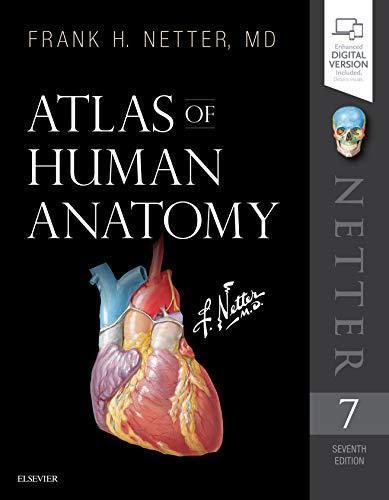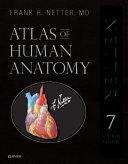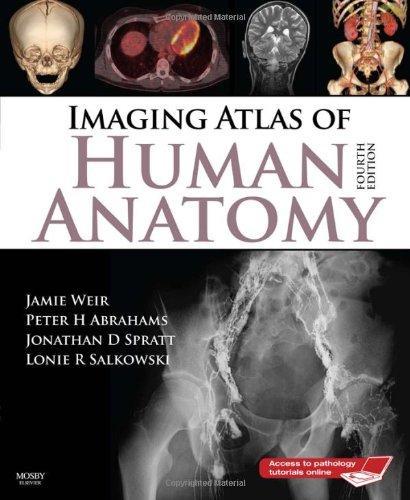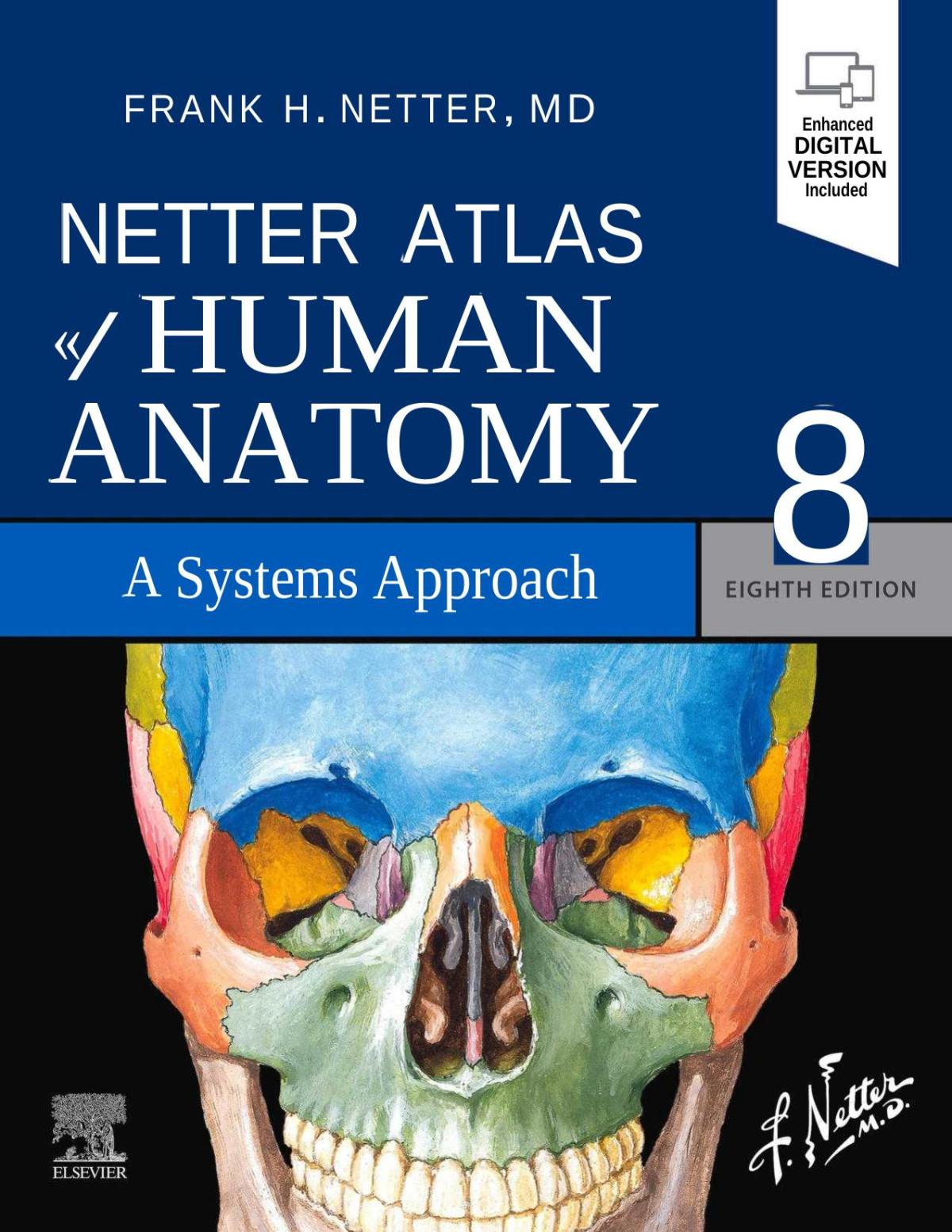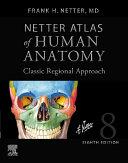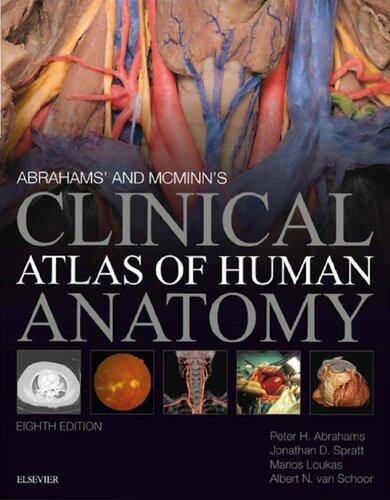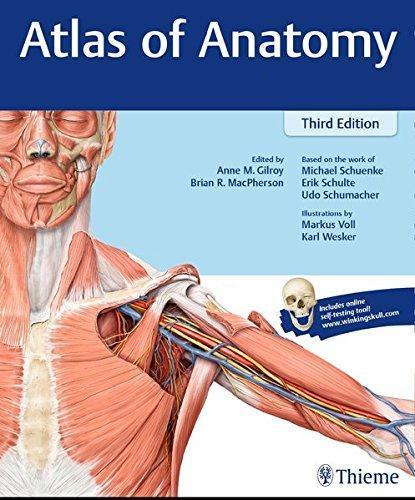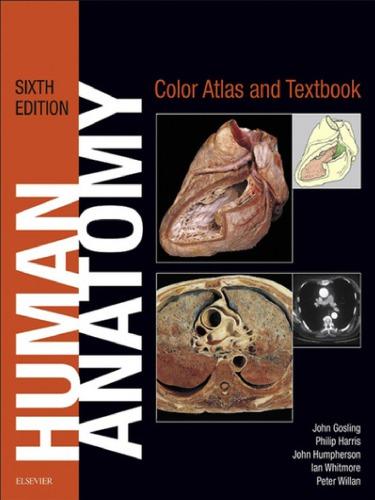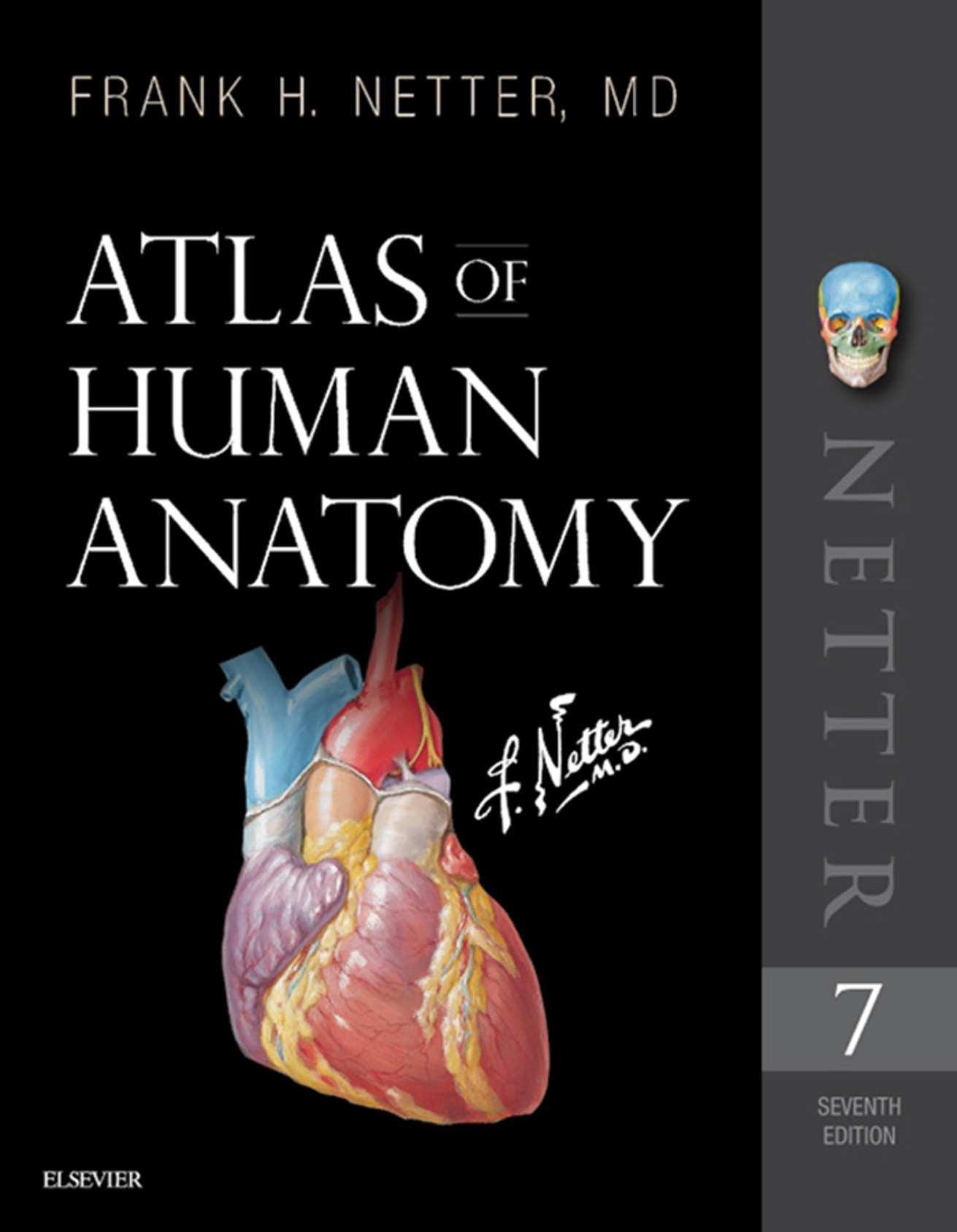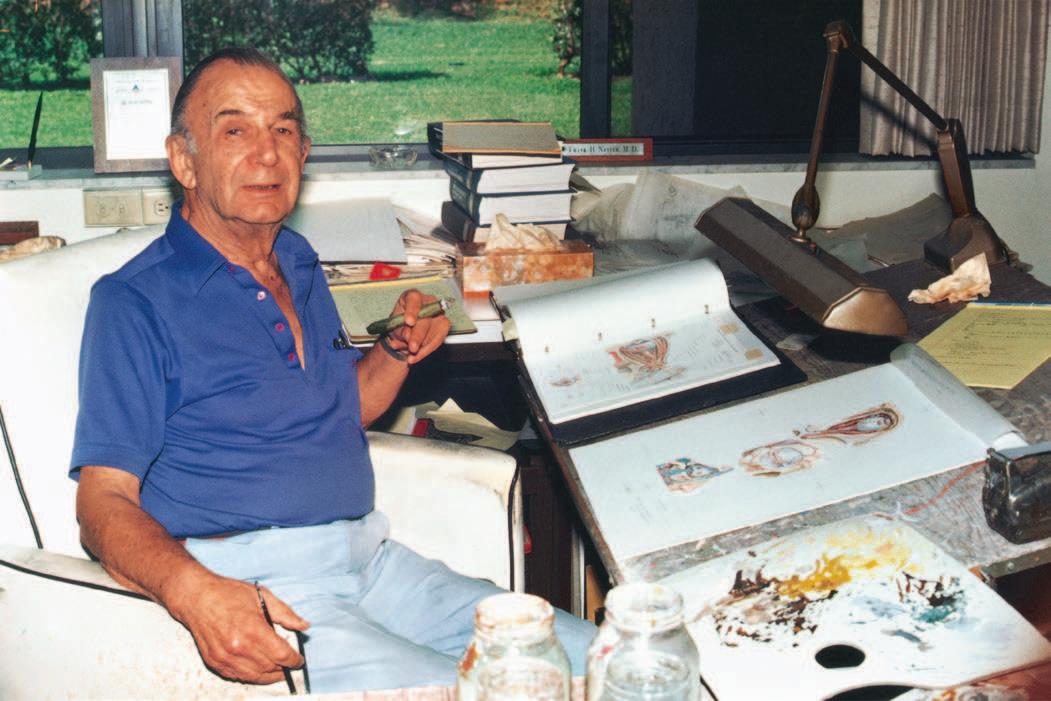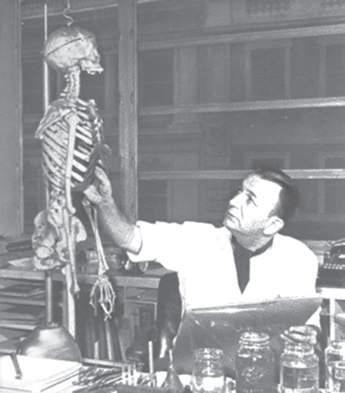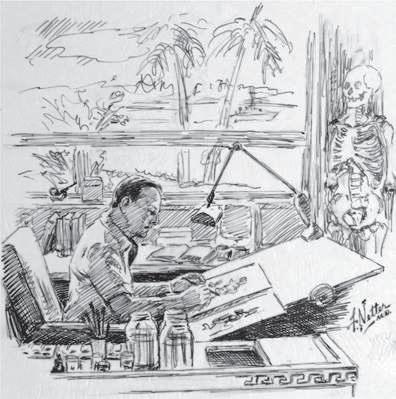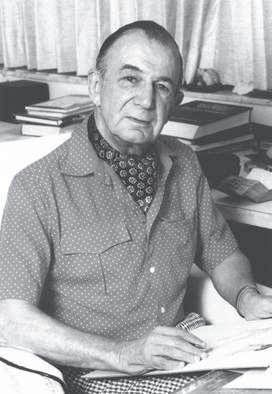ACKNOWLEDGMENTS
Carlos A. G. Machado, MD
I struck luck when joining this golden team of consulting editors exceedingly knowledgeable in the fields of clinical anatomy and medical education. It has been a great honor to work with and be under their guidance, as well as under the highly competent coordination of Elyse O’Grady and Marybeth Thiel, Elsevier’s Executive Content Strategist and Senior Content Development Specialist, respectively.
This unique book would not exist without the genius of its creator, Dr. Frank Netter, to whom I owe special thanks, also in the name of generations of students and health professionals who, like myself, have learned so much from his incommensurable body of work.
I dedicate my work and express my most sincere thanks to my beloved parents, Carlos and Neide, who provided me with the foundation of my education; to my patient wife, Adriana, and talented daughter, Beatriz, for their love and support; to the students, teachers, and health professionals who rely on my work to learn and teach; to all the body donors and living friends that have respectively been the subjects of my studies and models of most of the illustrations I have created for the Atlas; and to my teachers Eugênio Cavalcante, Mário Fortes, and Paulo Carneiro for taking my interest in human/clinical anatomy much further.
John T. Hansen, PhD
At Elsevier I would like to thank Marybeth Thiel, Senior Content Development Specialist, Elyse O’Grady, Executive Content Strategist, John Casey, Senior Project Manager, Patricia Tannian, Publishing Services Manager, Julia Dummitt, Design Manager, Karen Giacomucci, Illustration Buyer, and Madelene Hyde, Publishing Director, for their continuous support and meticulous attention to detail during the development of this seventh edition of the Atlas of Human Anatomy. They, along with the entire editorial, production, design, and marketing teams at Elsevier have been a delight to work with and to know. I also wish to thank my consulting editors for their insightful and constructive suggestions as we strive to make every new edition of the Atlas better. I am also indebted to Carlos Machado for his superb artistic skill in producing and updating a number of plates that appear in this latest edition of the Atlas. His renderings of human anatomy are the perfect complement to the Netter images. In addition to my fellow editors, I wish to express my thanks to my faculty
colleagues at Rochester and to all my past and present students who have provided generous and constructive feedback and have enriched my life. Finally, I am indebted to my entire family for their continued support and especially to my wife, Paula. Their love and encouragement sustains me and is the source of all the happiness and joy I know.
Brion Benninger, MD, MSc
Every day I am thankful for my wife, Alison, and son, Jack, for the laughs we have as a family, often from my follies, which is such a tonic. I thank Elsevier, especially Marybeth Thiel, Elyse O’Grady, and Madelene Hyde for their professionalism and guidance, enabling John Hansen, Carlos Machado, and my fellow coeditors to work in a unique and dynamic environment. I thank those clinicians who trained me, especially my early gifted surgeon/anatomist/ teacher mentors, Drs. Gerald Tressidor and Harold Ellis CBE (Cambridge & Guy’s Hospital); Dr. S. Standring, who embodies professionalism and displays fortitude; Drs. P. Crone and J. Heatherington, and the University Board for their stellar support; my past and future students and patients; and clinical colleagues from all corners of the world who keep anatomy dynamic, fresh, and wanting more. Special thanks to Jim Diegel and Erik Szeto, friends, mentors and fellow visionaries who also see “outside the box,” challenging status quo. A heartfelt tribute to my late mentors, friends, and sister, Jim McDaniel, Bill Bryan, and Gail Hendricks, all who represent what is good in teaching, caring, and healing. They made this world a wee bit better. Lastly, I thank my mother for her love of education and equality and my father for his inquisitive and creative mind.
Jennifer Brueckner-Collins, PhD
Many thanks to the Elsevier team, particularly Marybeth Thiel and Elyse O’Grady, for their guidance and expertise during our preparation of the seventh edition. It is always an honor to work with Carlos Machado, whose passion for and mastery of the art of clinical anatomy and medicine never cease to amaze me. I am forever indebted to Brian MacPherson, who has served as a teacher, mentor, and friend to me for more than 20 years….you showed me what it means to be a true educator and I have been so fortunate to have the opportunity to build a career based on those principles. To Kurt and Lincoln, you are my inspiration….my world…my life and I love you to the snow moon and back.
Todd M. Hoagland, PhD
It is a privilege to teach clinical human anatomy and I am eternally grateful to all the body donors and their families for enabling healthcare professionals to train in the dissection laboratory. It is my honor to work with outstanding medical students and colleagues at the Medical College of Wisconsin. I am grateful to John Hansen and the professionals of the Elsevier team for the opportunity to be a steward of the incomparable Netter’s Atlas. Marybeth Thiel and Elyse O’Grady were especially helpful and a pleasure to work with. It was an honor to collaborate with the brilliant Carlos Machado and all the consulting editors. I thank Bill Swartz and Mark Moss for being outstanding mentors, and I thank all of the graduate students I’ve worked with, especially Rebecca Lufler. I am deeply appreciative of Stan Hillman and Jack O’Malley for inspiring me with masterful teaching and rigorous expectations. I am indebted to Gary Kolesari and Richard Hoyt Jr. for
helping me become a competent clinical anatomist, and to Rob Bouchie for his camaraderie. I am most grateful to my brother, Bill, for his unwavering optimism and gregarious nature. I thank my mother, Liz, for her dedication and love and for instilling a strong work ethic. Finally, I am humbled by my two awesome children, Ella and Caleb, for helping me redefine love, wonder, and joy.
R. Shane Tubbs, MS, PA-C, PhD
Elsevier and the Netter team have once again been a joy to work with. I thank Elyse O’Grady, Marybeth Thiel, and John Casey for their tremendous work on this edition. In addition, Carlos Machado has again added his expertise to bringing his anatomical images to life. As always, my work is inspired by my beautiful wife, Susan, and son, Isaiah. Lastly, I am indebted to my parents, Richard and Karon Tubbs, who supported me in my career to better understand the human body.
Electronic Bonus Plates • Plates BP1-BP16
BP1 CrossSectionofSkin
BP2 PilosebaceousUnit
BP3 MajorBodyCavities
BP4 SkeletalSystem:AxialandAppendicularSkeletons
BP5 TypesofSynovialJoints
BP6 Joints:ConnectiveTissuesandArticularCartilage
BP7 ArchitectureofBone
BP8 MuscularSystem
BP9 OverviewoftheGastrointestinalSystem
BP10 OverviewoftheEndocrineSystem
BP11 NeuronsandSynapses
BP12 FeaturesofaTypicalPeripheralNerve
BP13 SitesofVisceralReferredPain
BP14 GeneralOrganizationoftheCardiovascularSystem
BP15 CardiovascularSystem:CompositionofBlood
BP16 ArterialWall
132 Oculomotor(CNIII),Trochlear(CNIV),andAbducens(CNVI) Nerves:Schema
133 TrigeminalNerve(CNV):Schema
134 FacialNerve(CNVII):Schema
135 VestibulocochlearNerve(CNVIII):Schema
136 GlossopharyngealNerve(CNIX):Schema
137 VagusNerve(CNX):Schema
138
AccessoryNerve(CNXI):Schema
139 HypoglossalNerve(CNXII):Schema 140 CervicalPlexus:Schema
AutonomicNervesinNeck 142 AutonomicNervesinHead
CiliaryGanglion:Schema 144 PterygopalatineandSubmandibularGanglia:Schema
OticGanglion:Schema 146 TastePathways:Schema
BP20 MusclesofFacialExpression:AnteriorView
BP21 MusculatureofFace
BP22 ParanasalSinuses
BP23 SubclavianArtery
BP24 OpeningoftheMandible
BP25 AfferentInnervationofOralCavityandPharynx
BP26 FasciaeofOrbitandEyeball
BP27 TympanicCavity
BP28 AnatomyofthePediatricEar
BP29 AuditoryTube(Eustachian)
BP30 ArteriesandVeinsofHypothalamusandHypophysis
BP31 CranialImaging(MRVandMRA)
BP32 AxialandCoronalMRIsofBrain
VertebralLigaments:LumbarRegion
SpinalNerveOrigin:CrossSections
ArteriesofSpinalCord:IntrinsicDistribution
VeinsofSpinalCordandVertebralColumn
VeinsofVertebralColumn:VertebralVeins
Cross-Sectional Anatomy • Plates 185-186
185 LumbarRegionofBack:CrossSection 186 TypicalThoracicSpinalNerve:CrossSection
Structures with High Clinical Significance • Table 3.1
Muscle Tables • Tables 3.2-3.3
Electronic Bonus Plates • Plates BP33-BP43
BP33 VertebralLigaments
BP34 CervicalSpine:Radiographs
BP35 CervicalSpine:MRIandRadiograph
BP36 ThoracolumbarSpine:LateralRadiograph
BP37 LumbarVertebrae:Radiographs
BP38 LumbarSpine:MRIs
BP39 SympatheticNervousSystem:GeneralTopography
BP40 ParasympatheticNervousSystem:GeneralTopography
BP41 CholinergicandAdrenergicSynapses:Schema
BP42 VertebralVeins:DetailShowingVenousCommunications
BP43 SpinalCordCrossSections:FiberTracts
SECTION4
THORAX
AnteriorThoracicWall:InternalView
IntercostalNervesandArteries
VeinsofInternalThoracicWall
PhrenicNerve
RespiratoryDiaphragm:AbdominalSurface
Another random document with no related content on Scribd:
state of sacrifice. The evils of the world and the crusading spirit had pressed upon her. That she had not been called upon for personal sacrifice did not mean that she could alter the attitude in which she was ready for sacrifice. And the seriousness of childbearing again had weighed her down. “Yes,” thought Dick, “we’re getting a bit heavy.”
The impression lasted until he went into his house that night and then he felt suddenly absurd. Upstairs he could hear the sounds of the babies being put to bed. Around him everything was orderly and still, waiting for him. It was comfortable and quiet and the sense of possession which so often came over him as he entered his home quite destroyed that vague feeling that he and Cecily weren’t quite getting all they might be getting out of things. And a sense of shame at even this slight disloyalty to all she had done to make him happy put extra devotion into his greeting of her.
She came down the stairs a little abstractedly. In two years she seemed, like Fliss, to have changed little—very pretty, very young still—only where the magnetism of Fliss had increased, Cecily’s had perhaps somewhat diminished. The constant day by day responsibility of caring for her babies had weighted her manner. Her mind was on the business of being a mother and a housekeeper—not on Dick, even when she kissed him.
“They are all quiet now,” she said. “If you must go up, don’t disturb them, will you?”
“No,” he promised. “Did the new housemaid come?”
“Yes, she’s here. I don’t think she’s going to be very good, though.”
“Don’t be critical, if she’s just here.”
Dick went past the nursery door, looking in to call to the two older children, then to Cecily’s room to see the new baby, so pink and well-cared for in its bassinet. Finally he went to his own room. He felt a little lonesome and would have been amazed if he had analyzed his feelings far enough to know what it was that he felt. But that was it. He wanted to be singled out for attention, and all he was getting was general care.
Cecily and Ellen were in quiet conference when he went down. They were talking in the hall about the merits of the new housemaid. He gathered that they were very disparaging and felt that their standards were over-high.
“I had lunch with Fliss Horton to-day—Fliss Allenby, I mean,” he told Cecily when she faced him as usual over the pleasant table.
“Lunch with Fliss? How did that happen?”
“I ran into her at the Lennox Restaurant. The Club was crowded and I went there at noon. She was kicking about not seeing more of us. Rattled off a bunch of talk about this and that engagement she had for this week. Are we asked to the things that go on—the Harris’s reception and this big dance Leonard Pollen is pulling off?”
“Of course we are. I don’t bother to show you the cards because we decided that we couldn’t do that sort of thing now.”
“Fliss said that she thought we were getting too domestic.”
“Fliss would think so.”
“Did you and Fliss ever quarrel?”
“Why, no, Dick. Why?”
“I just wondered, after she called it to my attention, why we hadn’t seen them in a long while. Not that I wanted to especially,” he added unnecessarily.
“We haven’t seen them for a long while. I miss Matthew, too. We used to have the finest talks. He had a way of making me think about things. I don’t know why I haven’t seen them, but I really haven’t seen anybody. For a while you know I was a bit down—low in my spirits, after——”
“Poor old Cecily. You certainly had every right”
“We mustn’t, Dick. It doesn’t sound as if we wanted the baby. I feel so guilty when I look at him to think I ever didn’t. Well, when I was feeling like that I didn’t want to see Fliss. She was so awfully gay—and so pretty and slim, you know. It used to irritate me. So I didn’t ask her here any more. And that meant not asking Matthew, of course, though I did miss him a lot.”
“Well, you’re slim enough now—and a lot prettier than Fliss ever was or could be—and with something to show for your trouble.”
“I know. But we don’t somehow jibe in ideals—Fliss and I. She likes that endless party-giving and party-going. I don’t think she wants any children.”
“Well,” said Dick, tolerantly, “she’s hardly the type.”
Cecily became a little rigid. “She hasn’t any right to dodge responsibilities. And I’m sure Matthew would like children. He is so fond of Dorothea and Leslie.”
“It’s hardly our business, dear.”
“Of course it isn’t. But I was fond of Fliss, especially after she was so fine when Dorothea was born. You know we did entertain for her and tried to make her know a few more people when she was just married, until we went to war. But she doesn’t seem to have much depth. Do you like a person who hasn’t more depth than Fliss?”
“I have all grades of liking,” pleaded Dick. “She’s amusing.”
“Well, if you feel so keenly about it,” said Cecily, “I’ll ask them to dinner next week. I’ll be glad to see Matthew and we’ll have an old time party.”
“Theater afterwards—maybe the Orpheum? We can get home early from there.”
“If you like,” assented Cecily.
Dick felt as if a point had been conceded to him when he was not in the least anxious for a personal concession. He went a few mental steps backward to see just where he had gone off the point, but it was an idle chase and he abandoned it after a moment.
Their evenings now had become rather of one pattern. They talked or read; Mrs. Warner came in; they went driving in the Warner’s big car or in Dick’s small one; they went to a moving picture or made a call on Dick’s mother—but always with the need of getting home early to the baby— always with the fear that Cecily was getting overtired hanging over them. Even their pleasures, their diversions, were never carefree. There were times when Dick felt that nurses and doctors and precautions about health had surrounded them rather unpleasantly long. But any such thoughts were always suppressed by the feeling that it was immensely selfish to feel any personal repressions when he had three healthy children and Cecily had been through so much. Three babies in four years! He had come to know and abhor the tone in which people, especially women, made that statement.
His talk seemed to bother Cecily. She brought it up again later in the evening when they had come home from a ride in the country and were giving the children a final inspection for the night. Dorothea and Leslie, in their white cribs, sturdy little bodies outlined under the miniature coverlets, were very pleasant to look at. It was a rite with Cecily—this last look—a reward for all the care they caused her and a further prayer for their health and safety.
“Don’t you think,” she said softly, as she stood looking at them, “that they are much more important than all the fun we might have had playing like Fliss?”
“You can’t compare two such dissimilar things,” said Dick, and then knew immediately that his remark had been true, but inadequate.
“But you’d sooner have these?”
He became a little irritated that she should have to ask such a question. Merely asking it assumed that he was hankering after things that he was not even wanting—that he wasn’t a devoted parent.
“Wouldn’t you?” he countered, rather cruelly.
Cecily merely looked at him in high reproach.
Then, because he felt a little conscience-smitten at the fact that Cecily was hurt, he followed her into her room and played with the little baby, who had waked up for his supper. He was a very gay father and ordinarily Cecily loved this mood and joined him in it, but to-night she was wrapped in seriousness.
“Of course they’ll be older soon, and then I can leave them to a nurse, but while I am still nursing the baby, I don’t see how I can manage a lot of society.”
“For Heaven’s sake, Cecily, don’t be so absurd. Who wants you to do society? I wouldn’t let you if you wanted to. Who could be happier than I am just as I am?”
Cecily sighed. “I know you’re happy,” she said, “and I’m happy. But this thing that came up to-night isn’t new. I hear it from other people—people who talk about my being ‘tied down’ and say I ought to enjoy myself while I’m young; people who say that they never see you about any more and talk about how you used to enjoy dancing and such things; women who say they don’t intend to have babies. You’ve no idea how they talk.”
“Haven’t I? Don’t I get the looks from the women who imply I’m some sort of monster because you have three children at your age?”
“I love the children. I couldn’t not have them.”
“Now, look here, Cecily, you’re tired out to-night. The worry of that new maid and the change in the baby’s feeding have left you flat. You just stop worrying about all this. We’ve been over it before, you know, lots of times, and we like our way of doing things. We may be a little out of fashion—we
may not do things just as other people are doing them, but we are doing them the way we want to do them and that ought to satisfy us. I’m absolutely with you and I’m not hankering after any gay society. I do think we ought to get out as much as we can—for your sake—but while these kids are small and with the damned lack of servants—or lack of damned servants—we’ll just have to stay by the ship. And you mustn’t worry.”
All of which was very logical and straight. Only Cecily had developed a little taste for virtue and the praise of virtue and the fact that they had chosen their own way was not enough. She wanted to be reassured that they had chosen the higher and better way and Dick should not have qualified by saying that they should go out as much as possible. However, he had stated the case, and Cecily was reasonable enough to know it.
She lay awake rather late, pondering things—whether things weren’t a bit unjust, since Fliss and her kind (she wanted to pin the problem down to Fliss somehow) had such a good time without responsibilities—what men liked in women and why Fliss looked so well in flame colored things— whether Matthew wanted children and wasn’t secretly unhappy. Finally, catching herself in the midst of a picture of Fliss miserable in a childless old age while she herself—she laughed, proving that she had that sense of humor which her stepfather had questioned once, said aloud, “Can this be the fair Wendy?” and went to sleep.
CHAPTER XIII
IT was Alumnæ Day at the convent. Alumnæ Day meant a half holiday for the students, frosted cakes for “gouter” at four o’clock, the formal rooms and study halls and dormitories extra well cleaned and polished, the Chapel sweet with the fragrance of garden flowers sent by some graduate, the nuns a little more hurried than usual, though always composed, their immaculate ruffs whiter, if possible, than ever. Alumnæ Day brought with it a reception for the graduates who came to inspect the convent and to be present at the awarding of the gold medal for Composition and the silver one for French Verse, always given in October to members of the graduating class and worn proudly throughout the year. Benediction was especially beautiful with the extra candles on the altar and Mother Barante’s voice singing the “Tantum Ergo,” and many a graduate, mentally scarred from some of her contacts with life, often a little heart-sick at the failure of
her ideals or broken by some sorrow, eased herself in memories of the peace of her schooldays. There was always a sale, too, of the handiwork of the girls and the money went to the support of the little charity school on the back of the convent grounds. Embroidered towels, pillow cases and such little luxuries were sold for ridiculously high sums and the graduates brought their friends to buy, too, and swell the fund for the charity school.
It was here that Cecily first met Fliss after the discussion with her husband and his rather disturbing lunch at the Lennox. By tacit consent Cecily and Dick had abandoned the plan for a “little dinner and the Orpheum” for the time being, both feeling a little fraid to reopen the discussion on points which might prove sensitive.
Madeline had brought Fliss. Madeline had attached herself to Fliss after Cecily’s comparative retirement and was quite one of the gayest people in that group which revolved around and with Mrs. Allenby. Agnes Hearding was there—tall, plainly dressed, a rather affected expression of continual high nobility on her face. Agatha Ward, too, and she had changed more than the others. Agatha had stopped writing verses, finding a more fruitful field in short stories, and she had been markedly successful for so young a person. Her first novel was on the press now. She bore the notoriety which surrounded her and all its attendant praise with considerable grace, a trifle conscious of making literary sentences perhaps, but not unpleasantly so.
The old, severely furnished convent made an austere background for the reception. Its proof that luxury was unnecessary to aristocracy was never more incontestable than on this day when the black robed nuns in the bare corridors and study rooms received the deference of beauty and wealth. No matter how powerful a graduate had become, no matter what she had excelled in, when she returned to the convent it was not to shed glory on her former surroundings, but to pay a tribute to the convent itself. So they all felt.
The groups gathered in the parlors and on the long wooden porch which overlooked the orchard. Cecily and her old group drew together again, extremely interested in each other as they always were.
“I haven’t seen you since we graduated, Cecily,” said Agnes. “I visited in Carrington once or twice, but you were always incapacitated. But I always try to make a point of coming for Alumnæ Day.”
“I come to the convent rather often, but I haven’t been to an Alumnæ Day before, since the first year.”
“That’s what it is to be a devoted mother. How are the children, Cecily?” asked Agatha.
“All very well; all very cunning.”
“Darling things,” said Madeline.
“But doesn’t it seem funny to think of Cecily with three children?” persisted Agnes.
“It’s very interesting,” said Agatha. “I think I’ll have to use you in a book, Cecily.”
“Type of the domesticated woman?”
“Dear, no—nothing so trite. No one deals with types any more, anyhow. It’s the vogue to be terrifically ‘inner.’ I’ll have to study you.”
“Don’t waste your time. Study Agnes.”
“I wouldn’t be interesting to modern fiction,” said Agnes, with some superiority. “I am a conservative, you know, and holding true to the things we learned in this dear old place.”
“What do you think the rest of us are doing, I wonder? It isn’t exactly immoral to write books or have babies, is it?”
“Or to be stupid?” put in Madeline. “Not to have any babies or any books—only a husband?”
“What I meant,” said Agnes, “is that simple religious ideals have gone out of fashion.”
“No, they’re coming in again.” Conscious that she was baiting Agnes a little, Agatha kept it up. “You’ll soon be fashionable, Agnes.”
“It’s possible that I may, after all, decide to enter the convent.”
That remark of Agnes did make a little ripple of excitement.
“Do you remember?” asked Cecily, looking about her, “the night we all sat in the parlor and discussed things? The night after the graduates’ retreat. Whether we should marry or not? Isn’t it funny that we are all doing just about what we thought we would do? Agatha writing, Madeline married and Agnes—I remember you said that if you really loved some one, Agnes, you’d marry. Now to enter——”
Agnes looked a little embarrassed and angry. “If I loved some one; but it is hard to find in these days a worthy person.”
They all knew then that Agnes must have been disappointed and no one pursued the subject.
“I remember that Cecily refused to commit herself,” said Agatha. “She didn’t know what she wanted to do.”
Cecily agreed a little dreamily, her eyes wandering off through the window.
“No, I didn’t know much about anything. As for knowing what I wanted to do I wonder if it isn’t all pretty much decided in advance for us; I wonder if we have much choice.”
“Here’s Mother Fénelon. Mother, Cecily has become a fatalist and Agnes is going to enter the convent.”
Mother Fénelon smiled. “Agnes going to enter?” she questioned. “Oh, no, dear Agnes hasn’t a vocation. She mustn’t joke about such things. And why is Cecily a fatalist?”
“She says we haven’t much choice in what happens to us.”
The nun turned and looked at Cecily. Under the beauty of Cecily’s face a kind of weariness showed for a moment, as she looked back into the eyes that reflected the peace of the cloister.
“Cecily was joking, too. You girls mustn’t talk this way. You’ll corrupt yourselves and each other.”
Fliss joined the circle.
“Having a reunion?” she said, as Madeline introduced her. “I’ve been wandering around, wishing I’d been educated here instead of in a noisy coeducational High School. Maybe sometimes I could talk to my husband if I had been brought up here. Where have you been keeping yourself, Cecily? I told Dick the other day that it was ages since I’d seen you.”
“He said he’d had lunch with you.”
“I hope he didn’t pretend he paid for my lunch.”
“No,” laughed Cecily. She always had a liking for Fliss when she saw her that her reason protested against. Every one liked to see Fliss around, especially with the new confidence which had replaced the impudence she had had before her marriage. “But he came home and told me that I didn’t
go out enough and that he’d had lunch with you. I felt very domestic and badly dressed.”
“And I told Matthew that I had had lunch with Dick and he said, ‘It would do me good to see Cecily once in a while,’ and I felt pert and overdressed and ignorant.”
“There’s your story, Agatha,” said Madeline. “Each of them intriguing the other’s husband. Mismated.”
“Hush,” said Mother Fénelon. “Madeline, even if you are married, I’ll give you a penance if you talk like that.”
“Give me the penance,” begged Fliss, laughingly. “I started it and I’ve never had a penance. I never have had any one to expurgate my conversation.”
“Will you have your tea now?” asked the nun.
They followed her, Fliss and Cecily together. The curious attraction, which was not always friendly, that they felt for each other—had always felt since that day when Cecily met Fliss—and which had been cemented at the birth of Dorothea, was rather stronger than ever, in spite of the way they had drifted into different camps. It was as if each of them possessed something the other lacked or desired.
“It is a beautiful place,” said Fliss. “I’m glad to see it, though it makes me feel, as I say, raw and ignorant.”
“It shouldn’t. It should just make you feel peaceful. That’s what it tries to do.”
“That’s what it would do to me if I were its kind of person. It would make you feel peaceful. Isn’t it funny? You don’t really belong to it religiously and yet you fit in here much better than Madeline. You’re like the place. Matthew would explain that all in high sounding terms. I can’t explain it, but I do feel it.”
Cecily appreciated the half thought-out compliment. “The convent means a great deal to girls who were brought up here.”
“Did you have to study hard?”
“Not too hard. Have you seen where we studied?”
She took Fliss through the study halls, through the garden, down to the refectory and the winter playroom.
“It’s so different,” was Fliss’s comment. “Of course I liked the old High, and I had a corking time there. And I suppose it was pretty dull here with no boys, but it did make—ladies of you all.”
“Perhaps it didn’t make us very wise.”
“No, I know a lot more than you do about ways to get what I want. I think I know more about handling men than you do. But then you seem to get them without handling.”
That struck Cecily as a bit coarse and Fliss knew it. So she acknowledged it.
“That sounds rather coarse, doesn’t it? But most things outside of this enclosure are a bit coarse, I think.”
“They needn’t be,” said Cecily.
“I wonder. I wonder if most people aren’t a little too coarse grained to like a place like this.”
They were talking of the convent, but Cecily felt an implied criticism of herself.
“Most people prefer High Schools, you think.”
“Most people are the High School type now—talk a lot and pretty freely. Wasn’t it funny to see how shocked the nun got at Madeline? And Madeline wasn’t saying a circumstance to most of what you hear. Most people are a little broad and most women pretty used to having men around, knowing a lot of them easily and being friendly and a bit flirtatious.”
Was she warning her, thought Cecily? Her pride rose against such a warning.
“Yet there are men who don’t like that sort of women,” she answered, a faint edge of hauteur in her voice.
Then to make up for that remark she asked Fliss if she couldn’t come home for dinner.
“We’ve a temporary supply of servants and plenty of dinner. Can’t you telephone Matthew?”
“We’ll stop for him,” said Fliss, “if you can drive home with me. Are you in your own car?”
“No, mother dropped me here; my own car’s laid up.”
That was glorious for Fliss. This time it was her car that took Cecily home. It was a Fliss-like car—lean and low and yellow-brown. They piled into it and went down town, people turning to watch them, Fliss skimming through the streets, letting other drivers save her life and get out of her way because she was a pretty woman in a handsome car.
Matthew seemed delighted. Cecily was struck by the fact that he looked younger, laughed more easily, was not quite so inclined to heaviness in conversation. They dropped Madeline at her house and went on to surprise Dick and please him too.
Cecily had telephoned Ellen, who had a ready half-familiar smile for Fliss. Fliss returned it a bit quizzically. She even dared, while Cecily was busy with the baby, to slip out into the pantry where Ellen was working.
“How’s your ma?” asked Ellen promptly.
“Fine. I dropped in on her last week just after I’d made her buy some new window curtains and found her tying them all up with loops of blue ribbon. She and dad are attending movie serials.”
“Is everything all right with you at your house?”
“Slick. I wish you’d come and live with me, now, Ellen. I’d make you my housekeeper and after a bit I’d like to tell Cecily you’re a cousin of mine. This seems so queer.”
“Better not. No, I won’t leave Mrs. Harrison. Help’s hard to get. She counts on me, and I love the babies.”
“Good old Ellen.”
“Not a bit. I like it here. It’s very homey.”
“Don’t you think my house would be homey?”
Ellen looked at her dubiously and let that pass.
“Well, if you prefer the highly charged domesticity of this place to me and my Matthew, it’s up to you.”
Dick came out, seeking cocktails.
“I’m getting a drink and flirting with Ellen,” said Fliss.
“You’re probably trying to get Ellen away from us,” laughed Dick, “but I warn you that she won’t go. It’s been tried.”
It was only natural that Ellen should take an interest in the table conversation. She answered the bell herself, for the housemaid had cut her
hand a few days before and, deliberately or otherwise, was retaining her clumsy bandages. It was obvious even to a listener so utterly untrained as Ellen that the old free give-and-take of the quartet was gone. They laughed just as much, gossiped as interestedly and haggled over their bits of philosophy as eagerly. Yet one could see that in these bits of philosophy, especially when they touched or seemed to touch upon habits of living, Cecily seemed to make an appeal to Matthew and Fliss to Dick. Ellen was very thoughtful as she washed her dishes, which the housemaid dried superciliously.
“Isn’t that Mrs. Allenby the prettiest thing you ever saw?” asked the housemaid.
“Not as pretty as Mrs. Harrison,” said Ellen, “but she’s very nice looking.”
“Well, Mrs. Harrison has looks all right—style, too, in a way, by which I mean she has nice things and expensive things—but to my way of thinking,” expounded Jenny, “she’s not in it with Mrs. Allenby for real class. Now, Mrs. Allenby knows how to dress. She’s an awful swell too. My goodness, you see her name everywhere. She’s the very center of that Country Club set.” Jenny had waited on table at the Country Club during the summer months and made fine distinctions.
“The men,” she went on, not at all disturbed by Ellen’s silence, “just flock around her. She livens things up so. Why, just think of the way she livened up that dining-room to-night. She knows how to put some pep into things. Everybody’s crazy about her. I wonder she can put up with a stupid little home dinner like this.”
Ellen chuckled at the marvelous reversals of standards.
“Oh, I don’t know,” she said, with a fairly good imitation of sarcasm, “maybe she wasn’t used to much before she married.”
Jenny cocked an elbow. “Used to much? That girl’s been a débutante, you can just be sure of that. She’s got a real aristocratic manner. You don’t appreciate standards like that, being from the country yourself, but to a town girl there’s no mistaking.”
“Don’t bang those cups.”
“Good Heavens, any one would think they were yours,” said Jenny. “I wouldn’t spend my life worrying about other people’s cups—or bothering about their kids either. You’re a fool, Ellen, and you’ll never get anywhere.
Of course I don’t know what Mrs. Harrison pays you (this lack of confidence was a rankling thing), but if it’s a cent less than sixty-five you’re stung!”
“No!” said Ellen, who was banking seventy-five dollars a month.
“Yes, ma’am!” said Jenny, and banged another cup.
The Victrola started in the living-room, playing dance music. Jenny jazzed a bit.
“Lord, why don’t they play it when they’re alone?”
CHAPTER XIV
CECILY started on a fairly determined round of gayety for a few weeks. She found it interesting at first and a little boring afterwards. It was very difficult for her to take or even pretend to take casual interest in people, and casual interest was all that society wanted of her. She was beautiful and had a charming manner. So much every one admitted. But she was a married woman with three children and the faint flavor of mystery which had made her so alluring before she had been married had gone. Of course she would consciously seek to charm no one, and her unconscious charm so definitely belonged to Dick Harrison that there was not much left for other men. She was not an invigorating presence or a stimulating companion unless she was really stirred to interest, and the net result was that Cecily found herself bored fairly often.
Dick was not. He could still amuse himself greatly with a pretty girl, because she was pretty; he enjoyed dancing and being foolish. Unlike Cecily he did not always carry depths around with him. Cecily had to fit play into a scheme of life or she could not enjoy it. Dick just played. He appreciated that Cecily went about to please him, thanked her for it, always told her and always sincerely thought that she was the loveliest woman in any group and proceeded to have a good time. It was not quite subtle enough for Cecily.
In the society into which she was thrown there was no one who marked the course of her development with interest. There were plenty of spectacular women doing interesting things, paradoxical things, and they saw in Cecily only passivity. The very domestic women who liked to talk babies and husbands rather intimately and eternally found her a little aloof
and reserved; and those of a gayer, hedonistic type thought her overserious. She was an individual in an age in which individuality has to be advertised and she had not the faintest ability or desire to advertise herself.
Older men and women said that she was a “good wife and mother”; women of her own age said she was “hard to get to know”; the younger girls said, like Jenny, “beautiful, but without pep.” So she was a little lonely.
Being uninterested, she saw many things of which she disapproved. Her early training had been all towards a fastidiousness of manner and a perhaps exaggerated modesty, so that it hurt her to see the manners of the girls and women. They were greedy for notice, in politics and on the dance floor; they were unreserved in thought and noisy in manner. Ugly—ugly in thought and manner—she found them often. It was partly the forced seclusion of her life, during the periods before and after her children’s births, that had kept her from any understanding of the reasons underlying the lack of stability and absence of dignity which bothered her so much. She had gone through war worries, borne war problems, but she had not known the terrors or horrors of war at first hand or through those dear to her. She had maintained her standards in her seclusion; and she could not see that some of this noise had been deliberately begun to silence the thoughts of those who had seen standards overthrown and trodden upon; who had seen them scorned, doubted, analyzed away.
Of course she was told that, but it did not make her more lenient. She could not condone the spirit of those she saw around her or see its relation to the spirit of exaltation into which the war had been popularly preached. It bothered her that girls were not more delicate; it bothered her that married women did not seem to appreciate the possible joy in a husband and in having children; she heard remarks that seemed to her to prove that the world was on its way to corruption.
The criticism which she felt of things around showed in her attitude towards her stepbrothers. They were in college now, boys of nineteen and twenty. Walter, the older boy, was extremely handsome; Gerald not so handsome, but even more spirited than his brother. Mr. Warner’s attitude towards his sons was to let them do pretty much what they would while they were finding themselves. To his wife and Cecily it seemed a very dangerous policy.
“It’s not as if the atmosphere of society itself were wholesome,” said Mrs. Warner, discussing with her husband the matter of further increasing Walter’s allowance. “It isn’t just gayety and frivolity. There’s something dangerous in the air. No one has any repose.”
“Except Cecily.”
“Cecily has it and the fact that she stands out sometimes as almost prudish shows what we are coming to.”
Her sons had brought Mrs. Warner almost to the point of developing and acknowledging a philosophy. Not quite. She, like her daughter, was still somewhat negative.
“Well, shall we give Walter that extra hundred?” asked her husband.
“He hasn’t said why he needs it. What do you suppose he does with it? Gambling or some woman?”
“I don’t think so. You might talk to him, dear. As far as I can make out it’s just that girls and clothes are expensive. It costs an appalling amount to take a girl to a Prom.”
“Any special girl?”
“I think he likes a girl in Philadelphia.”
But when Walter came for Christmas a few weeks later and they sounded him about the girl from Philadelphia he looked astonished.
“Oh, her—no, I haven’t seen her lately. Good reason, too, hey, Gerald?”
They burst into confidential chuckles and told nothing more.
Both boys had always been extremely fond of Cecily, even though she had been away from home so much that the children had not been much together, and Cecily was five years older than Walter. But they were proud of her and had a very good time with Dick. Cecily was equally proud of them, but they, too, worried her.
The two weeks before Christmas brought with them an unceasing round of parties, dances of one kind and another. Cecily was tired before it began. She nearly suggested that they should decline all Christmas holiday entertaining, but neither Dick nor the boys gave her any chance for that. So she shopped for the children and made preparations all day for Christmas at home, and in the evening her only rest came while she leaned back against the cushions of the car as they drove to some club, house or hotel to dance and be gay for hours. When she got there she usually found her brothers
there, too, for Carrington society was small enough to include all the possible young men from eighteen to thirty-five at its functions. Walter would be dancing with some pretty girl, held caressingly close in his arms, flirting furiously. Gerald might be dancing or he might be standing on the side lines looking debonairly on, or worse yet, already adjourned to some dark corner with a girl. It obsessed Cecily. She could not let them alone. She wanted them to be reserved, dignified even, in their gayety and they were not. To-morrow she knew they would tell hilarious tales to each other about the very girls they were flirting so scandalously with.
Gerald, bending over her, “It’s my dance, Cecily.”
She felt herself horrified at the very way he held her. “Don’t dance so close,” she protested. Then, “Who was that girl you were dancing with?”
“Helen Ramsay—pretty fluffy chicken, isn’t she?”
“You shouldn’t talk that way.”
“That’s what she is.”
“Gerald, haven’t you any respect for women—for yourself—that you can cheapen yourself so?”
“Where do you get that stuff, Cecily?”
Gerald’s intolerance hurt. The situation grew out of all proportions for Cecily. Gerald was being corrupted. He must be taken out of this. He must be reasoned with, shown that he was making himself cheap.
But he did not take to the reasoning kindly.
“What’s the matter with all of you? Mother rowing because I’m a few hundred dollars short; dozens of fellows are a few thousands; and now you making a male vamp out of me. What do you want me to do? Study for the ministry and wear blinders so I can’t see the girls?”
“I hate to see you with such stupid, inconsequent girls. That’s what bothers me. I hate to see you get flippant”—she stumbled in her speech —“valuing love lightly.”
“Lord, I’m not in love with the little Ramsay, if that’s what’s on your mind.”
“I know you’re not. Why play at it?”
“Fun!” said Gerald.
He left her and Cecily sat thinking of his last word and how she had come to hate it. It typified all the cheapness she despised. It amazed her to see how, during these few weeks of semi-unwilling participation in “fun” she had come to formulate a philosophy which definitely excluded it. Where she had been indifferent, she was now condemnatory.
From where she sat on the veranda she could see the ballroom. Dick was looking for her, Walter was dancing, not with a girl his own age, but with Fliss. Fliss was dancing just as Helen Ramsay had danced, close up to Walter, head against his shoulder, and Walter was talking to her in admiration. That was clear. An unaccustomed anger rose in Cecily. Her bodily weariness and her spasm of anger left her faint. As she turned, shuddering a little, she saw Matthew.
“Aren’t you well?”
“Tired—could you slip out and take me home?”
But, once in his big car he did not take her home, a matter of a dozen blocks. Instead he turned to the road which circled the boulevards.
“Hush,” he said, at her protest. “I told Dick that you were too tired to dance and that I was going to take you for a ride. It’s all fixed. I’ll be back there long before Fliss is ready to go. And I’ve not had a chance to talk to you for ages.”
But they did not talk much. They watched the city below them, spreading so big, a thousand lights coming from places of comedy and tragedy all intermingled. Once she roused herself out of her relaxation to tell him how peaceful she felt. He merely nodded.
High over the city he stopped on the very crest of the hills and shut off the motor. The place was black and silent and isolated. Stars hung close and the city looked small and remote.
“How infinitesimal it all is—all the fuss down there,” said Cecily.
“Of course you’d feel that,” said Matthew, lighting a cigarette. “That’s why I brought you up. It’ll do you good. You mustn’t let things as small as that eat you up, Cecily.”
“What do you mean?”
“Don’t let things bother you. Nothing matters an awful lot.”
“Life matters. So Mother Fénelon said once.”
“Perhaps it does—perhaps she’s right. But only in the large. Certainly little habits of life don’t.”
“It’s easy to feel that way up here, but down in the midst of those lights you can’t get the sweep of things. Little things irritate—habits of life do matter.”
“You ought to get away by yourself more. When I feel irritated I go up to my rooms and read what a lot of my betters, long dead, had to say and had to think.”
“Can’t be done by the mother of three.”
“I question that. The mother of three would certainly profit. I hate to see you all harassed. It isn’t right. Since the first day I saw you it’s always been a satisfaction to me just to think of you—even when I didn’t see you—as being calm and peaceful and beautiful. You mustn’t lose those things.”
“I wonder if I ever was calm and peaceful, passing up the other exaggeration. Now I nag at myself. I don’t know when it began.”
“Anything special on your mind, or just the accumulation of domestic duties?”
“I hate it,” cried Cecily suddenly, with a passion quite unlike her. “I hate the way people are living. I can’t make it out—anything out. If the principle they taught me that marriage is an institution for the home, for the bringing up of children is right, then all this—this fun—is wrong. You can’t have what they call ‘fun’ and be a good woman. You can’t play at making love with all this dancing that is only embracing—with all this loose talk—and keep your feeling for your husband or wife clean. And if you don’t you’re stupid or a bore—out of date. I know what people think of me. Women have actually told me that I’m foolish to have three children; that I shouldn’t let my household submerge me; that Dick is bound to crave ‘fun’! He does like it; he’s happier when we are going out places all the time; he makes himself cheap with these silly women; he uses the words he used to me when he talks to them—oh, that seems trivial, doesn’t it?”
“No, no, not trivial! Don’t talk any more, Cecily. You’ll regret it if you do. I’m going to drive on. I’m afraid, a little, that you are battering yourself against a real difficulty, against things which can’t be obviated. I want to think about it. See if I can’t explain some things to you later. But it’s hard to have to explain things when I am so sorry, Cecily, that I lose my philosophy.”
“Don’t bother, Matthew. I guess perhaps I’m just tired and a little jealous.”
“No. You are tired and a little jealous, too, but it’s deeper than that. You’ve been slipped into an age that doesn’t fit you and instead of making things better for you by hardening you young they preserved your quality to your own—no, not destruction. It mustn’t be that.”
He didn’t say any more. Nor let her talk.
“Hush. Now you are to rest. There’s nothing to worry about. Think of those nice healthy babies that ought to make you eternally grateful to your fate. Three of them to bring up. That gives you a reason to straighten out all these problems—so you can help them. But you can’t straighten them out by fretting.”
“Or by bothering you.” Her face, against the dark fur collar of her cloak, and dimly visible in the night, was very beautiful as Matthew turned to her.
“You couldn’t bother me. I care for you,” said Matthew with restraint and yet conviction. “I care for you more than any other single thing in life. And,” he went on quickly, warned by her little gasp, “there’s not the faintest disloyalty to Fliss or jealousy of Dick involved. It’s a different kind of feeling than any one else gives or could give you.”
Cecily’s slim arms, outlined under her wrap as she clasped her hands in sudden fear, relaxed again. “You’re beautiful, Matthew.”
He left her at her door and went back to find Fliss. The ballroom was very hot by this time. On the faces of the men perspiration or pallor showed that even they were beginning to feel the strain of five hours’ dancing. The circles under the eyes of the women showed the weariness which their rouge could not hide. But, tired though they might be physically, relaxation seemed the last thing in any one’s mind. The music was gayer, encores more frequent, the laughter was keyed higher, the abandon of dancing greater than before.
The men were cutting in on the dances of other men, women slipping from the arms of one man to those of another. Indefatigable. Fliss was wonderfully vivid. She never became disarranged when she danced. The bit of color that was his wife caught Matthew’s eye and held it. She waved at him, nodding to him to come in and claim her. But he shook his head. He wanted to see Dick first. Dick was talking to Gerald by the wall. They were quite uproarious over something. Matthew joined them.
“Cecily get home?” asked Dick. “Already?”
“We went for a ride around the boulevards first; she seemed pretty tired.”
“She is tired,” said Dick. “It’s too bad. With the babies and the maids and Christmas.”
“It’s making her cross,” said Gerald. “She called me down to-night. Didn’t like the way I was dancing.”
“Cecily really doesn’t care for going out much. She doesn’t like all the jazz stuff.” Dick’s smile was one of tolerance as he said it.
“Well, I wouldn’t let Cecily get to be a prig.” Gerald was, in intention, very worldly and broadminded.
“Oh, she’s not that,” said Dick.
“Not at all that!” Matthew interrupted. “Cecily is vastly superior to all this rabble and their doings. Do you really like this stuff yourself, Dick?”
“It’s sort of fun, but I’m off it for to-night. That’s sure. No, I’m going to have one more foxtrot with Fliss. She’s showing me how to get in an extra step.”
He stole Fliss from her partner. Matthew was alone again.
“Have a good time, Fliss?” asked her husband, unlocking their front door.
“Lots of fun,” said Fliss.
He looked at her crossly. “What in hell is fun, anyway?”
“Poor Matthew. You’ll never know. It’s a gift. You’re born with it, or you never get it.”
CHAPTER XV
DICK, a little under-slept, a trifle red about the eyes, was shaving. He knew he was late for breakfast and that that would bother Cecily. He knew the mechanism of his house ought not to be disturbed when the comfort and routine of the children depended on it. He did not feel quite fit for work and the hang-over of dance tunes persisted in his head. Moreover it was the first time that he and Cecily had not come home together from a party and while the arrangement was perfectly amicable at the time it was
made with Matthew, it did seem a trifle irregular this morning. Dick hurried and it made him cross.
Cecily hurried him at breakfast, too. She wanted to go over lists of Christmas presents with him, to plan the trimming of the tree. Christmas was day after to-morrow. She did not refer to the night before. He wondered with some irritation whether that was deliberate, and forced the opening of the subject.
“Did you have a good ride last night?”
“Wonderful. It rested me ever so much. I slept hard.”
“I hope,” said Dick, “that you’ll try to keep a bit more fit. You ought to be in good enough condition to stand a few hours’ dancing. Don’t you think you need a tonic, perhaps?”
It seemed very much off the point to Cecily. “I’d hate to have to take medicine so I could get myself to the point of dancing all night. Hardly worth while, is it?”
“I’m not sure it isn’t.”
She let that pass, and merely sat there answerless, looking hurt and cold. Dick got up.
“I’ll meet you down town and we’ll finish our shopping. Five o’clock at my office.”
“That’s fine.”
He kissed her, wishing that she did not look so virtuous and hurt, that she would fly at him, get in the wrong somehow, and went out of the house whistling the tunes he had carried over from the night before. Cecily, conscious of a hundred things to do, sat still, and Ellen, passing through the room, looked at her commiseratingly.
“Tired after last night, Mrs. Harrison?”
“A little. Everybody’s much gayer than I am, Ellen. No one else seems to get tired.”
“They don’t all have three children and go to dances.”
“Don’t they? I wonder how they manage. Ellen, I’m going to have every one here to-morrow night for the tree—Mrs. Harrison, my mother and father, Mr. Gerald and Mr. Walter. Then we will carry the children down after the tree is lit.”
“Won’t it be lovely?”
Dorothea ran in, clamoring. The business of the day pressed on Cecily. She lost her over-serious mood of the night before, a little ashamed, as Matthew had understood she would be, that she had let her half-grown thoughts out so freely. Well, Matthew was not like other people.
By the time she met Dick her day of activity had put her troubles into the background. She dressed rather carefully to go shopping with him and in her soft gray fur coat and hat, with a sprig of holly in her muff, she looked like an illustration for some Christmas story. Dick appreciated that. He was always proud of her. They sent the car on to meet them at the confectioner’s, and walked through the sparkling streets, gazing into windows. In the toyshops they were madly extravagant, though Cecily kept insisting that all the possible toys for the children were already bought.
“They’ll smash and then they’ll have these,” said Dick. “These are my own contribution to the Christmas wreckage.”
He took her to the jeweler’s while he bought presents for his mother and hers, cigarette cases for the boys and was furtively given a package which he did not show her. Then to a florist’s where he supplemented the holly with a great bunch of violets. They were so happy, so young and handsome that many a man and woman turned to look at them in admiration and envy. And the snow covered streets, the street lights and sparkling windows, the faces of happy people passing, all the setting made Dick and Cecily feel a magic in the air.
In the car Dick turned Cecily’s face up to his and kissed her, as he had not kissed her lately—without any savor of duty or habit.
“Quite as if you wanted to,” said Cecily breathlessly.
“Quite,” laughed Dick. “I always want to, but I’m a bit afraid of hurting you or you are busy with the children or have your mind on something else. To-night you seem so particularly mine.”
They had come upon a mood which was the breath of life to Cecily— exalted, joyous, without a note of ribaldry. Dick could share those moods at times, but he did not live for them as did Cecily. She went about the next day in a happy blur of excitement. The house was full of the smell of Christmas baking and Ellen’s face, steamed and red, fairly shone with pride as she loaded the shelf in the butler’s pantry with the things she was making. Dorothea was full of excited baby questions. The tree was brought
in and stood in a corner of the living-room which seemed particularly made for it. The fireplace had a Christmas log, thick and round. Presents were delivered. Expressmen brought packages. The postman left dozens of Christmas cards. The glitter, the greeting of the holiday season permeated the house. Dick was like a boy, stealing up to his room to hide still more extravagances. And by evening, after the tree was ready to light and Dorothea was in a wild palpitation about staying up after seven o’clock, the Christmas charm had reached its height. Mrs. Harrison came early. Her chauffeur brought her basket of packages to the door and the dainty, aristocratic little lady came in, all aglow herself with the excitement of spending a Christmas eve where there were children. Mrs. Harrison was very fond of Cecily and loved to enjoy herself with unsuitable indulgences for the children, which because she was a lady who thought in terms of material things, meant embroidered dresses and superfluous bonnets.
Mrs. Warner was there, looking as beautiful as only she could look, and Mr. Warner’s pockets were bulging with white packages, his arms laden with mechanical toys, already almost destroyed because he and his sons had been trying them out at home. The two young men were there, carrying on systematic “jollying” of Ellen, who adored it and them as only an old maidservant can enjoy the notice of the young men in the family. They gathered in the breakfast-room and then marched to the living-room, even Mrs. Harrison entering into the spirit of the procession. Dorothea whooped with joy, the elder baby blinked at the candles and waved an incoherent hand at them all and Dick began delivering the presents.
Cecily, whose household budget was always leaving her in financial straits, found herself in delighted possession of a thousand-dollar check from her stepfather because “she had been a good girl.” She had no way of realizing then how much that money of her own would mean to her later. They joked a good deal about how she would spend it. Dick gave her a slim platinum bracelet, slipping it on her arm himself, calling it his “handcuff.” There was a deluge of tissue paper as the dozens of gifts were unwrapped. Then they all focused on Dorothea, somewhat dazed and bewildered by the onpouring of new things to amuse her. Mr. Warner set a mechanical duck, a toy train and a self-starting toy automobile in uncanny procession across the room, Gerald tooted the horns, and Dick started to build a toy house out of blocks which were far too complicated for the children to handle. Cecily sat on the floor and watched him and Mrs. Warner watched them both as she
talked inconsequences with Dick’s mother. Ellen had retreated to the kitchen, full of grateful embarrassment because she had been given a fur piece that amazed her and she poured dandelion wine and cut the richest fruitcakes recklessly, for Jenny, of course, was out at a “swell dance” somewhere or other. The nurse took Dorothea to bed. The tissue paper was collected and the dandelion wine drunk with much jesting. Cecily was sitting with her head against Dick’s arm when the door bell rang and Matthew and Fliss came in.
“Do you mind?” asked Matthew. “Our house is celebrating Christmas by six dollar holly wreaths in the windows, but we’ve no excuse for a tree.”
A warm, treacherous little sense of virtue rose in Cecily. She was immensely cordial to them both. She wanted them to see the tree, taste the warm spicy atmosphere of her home on Christmas, see the toys that meant plenty of children. She wanted Matthew to enjoy it all. She wanted Fliss to see it all.
But it worked out a little differently. Perhaps Gerald and Walter began it. They had been gay all evening, but they were gayer with the advent of Fliss. They insisted on making her presents, giving her cigarette cases and cuff links so that she wouldn’t feel neglected and putting one of the baby’s fat dolls on the heap of nonsense they laid at her feet. They plied her with dandelion wine and Fliss, taking just a cordial glass more than the other ladies had, proceeded to make herself interesting. Under Cecily’s influence the evening would have mellowed, changed from gayety to soft quiet and seriousness. Under Fliss’s influence gayety mounted higher and higher. It was Fliss who dominated. It was Fliss who got them all into gales of laughter by her tales of her Christmas shopping for Matthew, Fliss who started the competition to see who could blow the candles on the tree out at longest range, Fliss who started a sophisticated little gossip with Mrs. Harrison about the latest and most fascinating scandal, and finally Fliss who offered to show Dick again just how that dance step was managed.
“Sorry I can’t demonstrate here,” she said.
“Sure you can. Here, roll up the corner of the rug,” suggested Dick. There was a Christmas carol on the Victrola. Cecily watched them whisk it off and change it to a dance tune—watched them wrecking the Christmas scene that she had planned and loved.
“Why dance to-night?” she protested, trying to be jocular about it all and succeeding so poorly that every one turned to look at her. There was an undercurrent of angry pain in her voice.
Walter came over pulling her to her feet by both hands.
“Now, don’t be a crab, Cecily. You’re getting too old for your age. Let’s have some fun.”
He whirled her into an absurd dance and when he had finished she was laughing in earnest. But she went over to the sofa on which her mother sat and dropped down beside her.
“It wasn’t the kind of evening I’d planned,” she said in an undertone.
Mrs. Warner looked at the boys and Fliss and Dick, all grown so uproarious, at her own husband smoking in placid enjoyment as he and Matthew talked politics.
“But there’s no harm in it, and you can’t dictate in your own house.”
“There is harm in it,” said Cecily, her voice tight and hard. “There is harm in it.”
She stayed there a little longer and then slipped from the room. Upstairs beside her window she stood with her hands pressed to her head as if to still the torrent of painful thought that raged through it. The front of her mind seemed trying to reassure the back of it, she thought—the front persisting that as her mother said “there was no harm”—the back protesting against a violation of ideals and sanctities and against cheapness and frivolity. She did not know how long she stood there, how long it was before she heard Dick’s step in the doorway. At the look on his face she knew that he was conscious of no wrong—he was puzzled and a little angry.
“Your mother sent me to find you. Is anything wrong? Aren’t you well?”
The impossibility of putting her grievance, her torture, so real the moment before, into words confronted her.
“I’m quite all right.” And then, irrepressibly: “Only I don’t see why they should act so ribald on Christmas eve.”
Dick’s face grew hard; a new disagreeable little glint was in his eyes.
“I really can’t see what has come over you, Cecily—why you object to every bit of fun you see around you. You want to run things your own way absolutely—allow no one else to enjoy things that you won’t or can’t enjoy.
I don’t think you’re a good hostess or a sport, sulking off up here by yourself.”
He went out and left her fairly stricken with horror, wanting to call him back, wanting to scream, cry, wake up—do anything to undo the fact that he had spoken to her like that on Christmas eve, that the glamour of the day before had been torn across already. Instincts of control struggled for the mastery of her hysteria. And control won. Over her knowledge that the sacredness of Christmas, the sacredness of love was stained and hurt irrevocably, with the memory of that cruel light in Dick’s eyes making her almost dizzy, suddenly aware that Dick was not carelessly disregarding her wishes, but deliberately doing so—she went downstairs. It was very trivial, yet nothing could ever hurt Cecily quite as much again. She would never be quite so unprotected again. In those few moments she had learned the art of concealing pain and going on with things.
Dick thought she was fine. His little fit of anger had spent itself and he was sorry, and genuinely glad that Cecily had come to herself. Inwardly he put it down to the old excuse that she was “tired” and then forgot. For they were all very gay, gayer than ever now that Cecily had really joined in. In the dancing the Christmas tree fell a little awry and had to be propped up with a chair.
It struck midnight. Christmas had come in, unheralded. Matthew spoke, suddenly grave:
“We’re going now, Fliss. This is Christmas, and it’s a holy-day with lots of people. Come.”
They all said good night and Dick and Cecily were left alone in the disordered room. Some sense of Cecily’s grievance must have come to Dick as he looked about.
“Come to bed, dear. We’ll straighten this mess up in the morning.”
“In a minute. You go on.”
He went up and she moved about, arranging and ordering, her brows knit. When she had finished it did not look so different from the way it had looked early in the evening. But she regarded it without emotion. She was doing this for the children and for their self-respect—not for joy. Then she turned out the lights and the room was soft in the light of the dying fire. The tinsel on the tree sparkled. She went upstairs.
Dick was in her room, trying to restore everything, wipe out those few angry words. Cecily was conscious as he talked on, mostly about the children and their enjoyment, that she was making things difficult. She was not responsive, and she knew he felt it. The little glint had gone from his eyes. They were honest and tender now. But, she thought, that other expression lies back of them—just back of them.
Then she was sorry. He was hurt as she turned a little from his kiss. She felt old, maternal, conscious that she could not tell him what he had done, how he had hurt her. Perhaps men were like that; perhaps things did not matter so much to them. She could not tell him. She did not want to hurt him. Gently she kissed him.
“Merry Christmas, darling,” said Dick.
CHAPTER XVI
IN January Cecily found her hands extremely full. Ellen had an unexpected call to take care of a sick relative—she did not tell Cecily that it was Mrs. Horton—on whom tragedy in the form of cancer had descended. She would not consent to an operation and Ellen’s duty was partly to take care of her, partly to reassure her, partly to keep her from answering patent medicine advertisements which “guaranteed to cure without the use of a knife.” Mr. Horton had come for Ellen, not daring to risk the telephone in his wife’s presence and at sight of the helplessness of the sagged figure at the kitchen door Ellen was bound to help. She said she would come for a month and by that time they could find a nurse. It was obvious enough that the sick woman was more important than Cecily’s household, but Ellen was none the less distressed. She left a sour-faced Swedish woman and an increasingly pert Jenny to take care of the Harrisons and went on her errand of mercy, pulled backward and forward. Cecily had tried to be as kind as possible, but she had urged Ellen to come back as soon as she could.
“After a bit no doubt they’ll get a nurse,” said Ellen. “It’s just at the start that a relation is easiest for the poor woman.”
“Can they afford a nurse?” asked Cecily.
“There’s a rich daughter.”
“Then why doesn’t she take care——”
“She couldn’t. She’s young and I suppose her husband needs her.”
Fliss had indeed offered to do everything except give personal care to her mother. Matthew was the only person to whom she could give personal service, and even for him there was not too much, but she had arranged for specialists to examine and recommend; she had tried to make her mother have a trained nurse; tried everything that money could buy. That she shrank from the sight and thought of the corruption of the body was only that she was Fliss.
Matthew had been told of the identity of Ellen as her cousin, with one slight change in the facts. It was Ellen’s proud request that the relationship be kept from the Harrisons, according to Fliss. So he was not surprised to see Ellen take up her place in the Horton household. Matthew was far more appreciative of and able to understand Fliss’s parents than she was herself. Ordinary people with cramped minds and petty satisfactions were not out of the range of his philosophy as they were with her. He did not see the Hortons often, but once in a while he and Fliss went there for an evening or Fliss invited them to her house and undoubtedly the event, mostly taken up with small gossip and cribbage playing, did not irritate him as it did his wife.
Now that Mrs. Horton had taken to her bed, or at least to her tawdry kimonos, driven by fear and indigestible patent medicines as well as by the progress of the disease, the flat she called home had become an even more unattractive place. Ellen found unwashed dishes in every corner of the cupboard, under the gas stove, in the icebox; dirty linen; everything neglected, everything uncomfortable and in the midst of it the whining, terrified women and the unquestioning, drearily patient man. She tried to cheer them up and managed at least to make them comfortable. But it was far from easy or satisfying.
Coming in the day after Ellen had taken charge, Fliss praised her extravagantly.
“I don’t see what we could have done if you hadn’t come; she wouldn’t have a nurse though I begged and begged.”
“Well, that’s natural,” said Ellen. “Nurses frighten people who aren’t used to them. I don’t know as I blame her, but she ought to do as the doctor says.”
“The doctor says that things are already pretty far advanced. He can’t be sure that even an operation——” Fliss shuddered miserably. “Oh, Ellen, why don’t they find a way to cure it?”
Ellen patted her on the shoulder. “Trust in the Lord, my dear,” was all she said.
Fliss went in from the kitchen to see her mother who looked at her with the apathetic misery that had characterized her of late.
“Feeling better, mother?”
“I’ll never be better. They as much as tell me that. I’m going to die, especially if they get their knives on me.”
“Don’t be silly, mother. You know they just want to help. Matthew got the best doctors. If you’d just let them operate.”
“That’s it! Every one after me wanting to see them cut into me. I’ve heard of those doctors before, thank you. Mrs. Todd came in to see me yesterday and she said to me: ‘Mrs. Horton, don’t you let those doctors experiment on you.’ She told me some things that were terrible. And she told me, too, about a new thing they’re getting out that has helped lots of women—just a kind of tonic that they say makes the trouble disappear in two months.”
“That’s just quack stuff. You know that. If there were any such thing the good doctors would be using it.”
Mrs. Horton laughed, the high querulous laugh of the invalid who has already become suspicious and opinionated.
“I know what I know, Flissy. All those high-toned doctors want to do is to experiment on me and get Matthew’s money. I know them. You don’t let yourself get taken in by them.”
Fliss sat still watching her mother as she lay on the couch, a sodden heap of misery that would make no constructive effort. She looked baffled. Then she rose and unpacked the luxuries which she had brought with her: choice food, invalid comforts, a black satin negligee.
“Black!” shrilled the mother. “I’m not dead yet, thank you! Take it away, Flissy. It gives me the creeps.”
Fliss went back to the kitchen.
“It’s such a comfort to think that you are here, Ellen,” she said, drawing on her gloves. “There’s not a thing I can do to please her. She’s so changed.
All that she used to want was a movie and a bridge game. Now the only thing she wants is to talk over her symptoms with some old hag who recommends patent medicines and tells her not to let any one knife her. But it’s rotten for you here, I suppose.”
“It’s only temporary. I told the doctor to send a nurse and I’d try to train her in—one of those practical nurses who can do housework and is sort of companionable. I have to get back to Mrs. Harrison, of course.”
“Going back there? Why do you, Ellen? Please stick by us now.”
“I will, as long as I can, but I promised Mrs. Harrison and she really couldn’t get along without me.”
“Let her get some one else.”
“I promised her, Fliss. I’ll fix your mother up, but I’ve got to go back to my own place.”
Fliss stood up, passing her slim hands over her well-tailored hips, lifting her hand bag delicately from the crowded table. Her face was perplexed.
“I’m no good at nursing, you know,” she commented.
“No; but we must find some one who is just the right person.”
“Do. And I’ll come just as often as I possibly can.”
“I would. She’s your mother, Fliss.”
Fliss frowned a little and went out into the sunlight. There her step quickened and her face grew gradually brighter. She seemed to be tossing the misery from her at every step.
She made some calls, told her hostesses a little plaintively about her worry for her mother, and after having exposed her trouble in several charming and handsome rooms, felt it vastly easier to bear. She succeeded in making it a little more remote, somehow putting it in a better setting.
By the time she reached home she could smile without effort, and even tell Matthew, whom she found dressing for dinner, that her mother would probably improve under Ellen’s handling and consent to an operation.
“Good.”
“If Ellen only stays. She wants to go back to Cecily.”
“Wonderful what loyalty Cecily does inspire, isn’t it?” said Matthew ruminatively.
“She probably pays Ellen well.”
